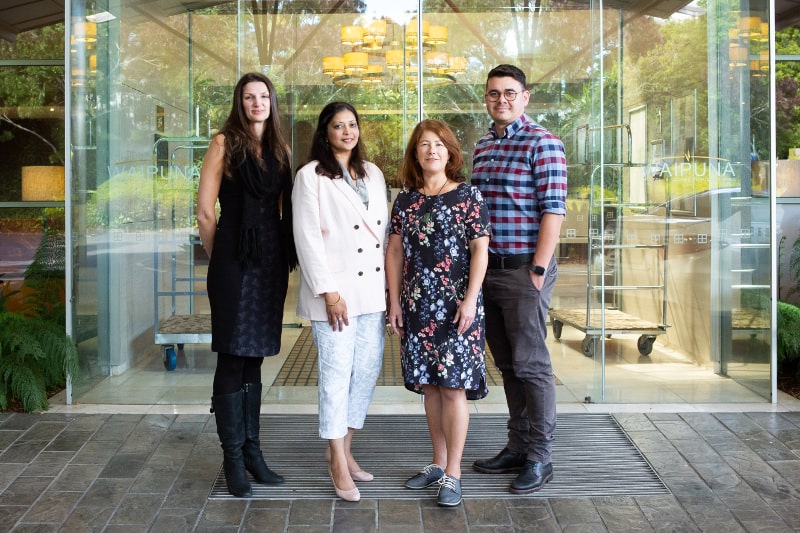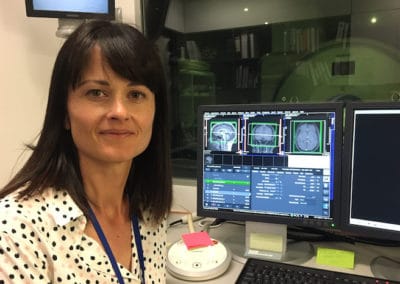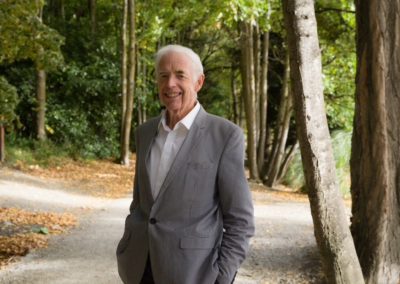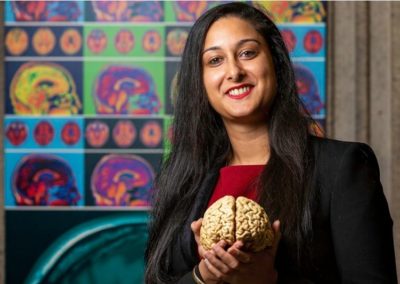There are said to be more than 60,000 people living with dementia here in New Zealand. But did you know that this number is only an estimate, based on statistics from other countries? To date, there has never been a dedicated, nationally-representative study into the prevalence of dementia. This is a situation that BRNZ Principal Investigator, Dr Sarah Cullum, wants to change. When she arrived here from the UK in 2016, Sarah worked as a Consultant in old age psychiatry at South Auckland’s Middlemore Hospital. “One of the first things I noticed was that, in the memory service, we seemed to see Māori and Pasifika people at a younger age than NZ Europeans,” she says. “On looking into it, I realised that there was hardly any epidemiological studies on dementia here – we had nothing that took account of New Zealand’s unique demography.”
Just a few months later, an academic post in the Department of Psychological Medicine was advertised at the University of Auckland. Sarah applied for it, was successful, and began developing the preparatory work to study dementia in different New Zealand communities.
Through this work she met other members of the BRNZ family – Prof. Ngaire Kerse, Māori neuropsychologist Dr Makarena Dudley (Te Rarawa, Te Aupouri, Ngāti Kahu), and Senior Lecturers Dr Gary Cheung and Dr Rita Krishnamurthi. “We all just clicked, really, especially on the need for cross-cultural, population-wide studies on dementia,” Sarah says. “We started to develop the idea for a project, based around translating the ‘gold standard’ dementia assessment tool (the 10/66 protocol) for use in different communities and gradually the team is growing around us.”

 Their overall goal is ambitious; to measure the prevalence of dementia in people aged over 65, and the cost impact of dementia particularly on unpaid family carers, across all of NZ’s major ethnic groups. The first step along that path is a large-scale feasibility study to refine their tools and procedures, and ensure they are fit-for-purpose. For this, they have received financial support from both BRNZ and the HRC, allowing the team to reach participants from six different communities – Samoan, Tongan, NZ European, Māori, Chinese, and Indian.
Their overall goal is ambitious; to measure the prevalence of dementia in people aged over 65, and the cost impact of dementia particularly on unpaid family carers, across all of NZ’s major ethnic groups. The first step along that path is a large-scale feasibility study to refine their tools and procedures, and ensure they are fit-for-purpose. For this, they have received financial support from both BRNZ and the HRC, allowing the team to reach participants from six different communities – Samoan, Tongan, NZ European, Māori, Chinese, and Indian.
Central to this effort is the diverse and highly-experienced research team that has been assembled. “From the very beginning, we recognised that – in addition to the technical skills we all bring – if we were going to do something multi-cultural, then those cultures need to be represented at the very heart of the team,” she says. So, joining Sarah, Margaret, Rita, Gary and Ngaire, are Dr Fiva Fa’alau – an expert in Pacific health and wellbeing – and Dr Etu Ma’u, a Tongan old age psychiatrist working in Waikato.
In the initial stages, the team worked with local NGOs providing services for the elderly, including Dementia Auckland, Shanti Niwas and Vaka Tautua, as well as Middlemore’s memory clinic, but are now beginning to reach out to all of the communities. Sarah admits that this aspect of the project is not without its challenges, but she’s confident that they’ll achieve what they’ve set out to do, “We have a lot of cultural complexity to navigate, but thankfully, we have an exceptional team who bring with them an incredible depth of knowledge.”
She continues, “Dementia is becoming a global public health priority, but for us to understand the scale of the issue here in New Zealand, we urgently need to have our own data. That’s why the tools and knowledge that we’re building are so important.”
(Banner image: Members of the study team, from left: Dr Susan Yates, Dr Rita Krishnamurthi, Dr Sarah Cullum (Lead Investigator) and Adrian Martinez-Ruiz.)
– Written by Laurie Winkless



